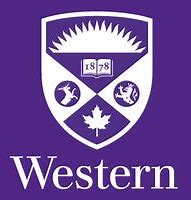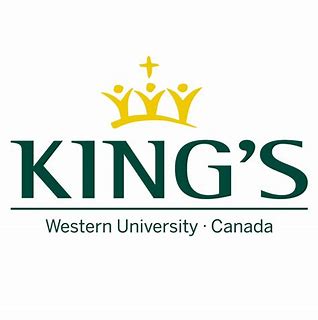Tom's Courses
My Courses
I teach in the Writing Department at the University of Western Ontario and King's University.
Writing 3901: You're a Strange Animal: Writing Nature, Writing the Self Section (Designed by Tom Cull)
Nature is a slippery fish. In this course, we will use poetry, fiction and non-fiction to capture (and release) some of the fundamentals of nature writing. We will write about nature, in nature. Campus will be our classroom. We will spend about half of our time exploring natural (and not so natural) features of Western Campus: hissing geese, tree species, birds of prey, groundhogs, creepy-crawlies, green spaces, parking lots, taxidermized animals in the basement of Natural Science, the river, the food court, the football field. In effect, we will become literary naturalists; we will learn to pay attention to nature, and think about how it may be captured—and released—through literature. You will need the following: notepad, pen, sturdy footwear, a sense of adventure.
Writing 1000 The Writers' Studio
Students are introduced to the creative process of writing through in-class exercises, peer workshop, analysis of creative texts, journaling, essay writing, and a review of grammar, mechanics, and composition. Students learn strategies for idea generation in a variety of genres (poetry, fiction, nonfiction, screenwriting), composing a first draft, approaching revision, and effective editing and proofreading techniques.
English 3998: Creative Writing Workshop
Welcome to Creative Writing Workshop, a course that introduces students to writing fundamentals for a variety of literary forms, including fiction, non-fiction, poetry, comics, scripts/plays. We will analyze pieces of literature to see how they are constructed, and we will spend time each session practicing our writing with in-class prompts. Because all writing is re-writing, students will participate in regular peer editing workshop. The focus of the workshops will be on how to give, receive, and incorporate constructive feedback on student work. Students will also learn how to submit finished works for publication and participate in rich literary communities on and off campus. (Designed by Tom Cull.)
Speech 2001 The Major Forms of Oral Discourse
Speech 2001 is an intensive practical course dedicated to developing and refining skills ineffective oral communication. Students are expected to speak frequently; emphasis is on direct address before a group, with effective organization of ideas, clarity of expression, and use of rhetorical strategies and tactics. All aspects of the arts of delivery, the logical construction of arguments and their support, effective arrangement of material, rhetorical analysis of speeches(both written and oral), and effective use of statistics, testimony, evidence, and examples will be included. In addition, emphasis is placed on acquiring and applying communication theory and on developing listening and critical skills, including peer evaluation.
Writing 1030G: Writing for Professional Success in Nursing
This course introduces the basic grammatical and stylistic principles of good, clear, written English in the particular academic and professional context of Nursing. As the calendar description of the course points out, emphasis will be put on “practical work and the development of writing skills for a variety of genres appropriate to the profession” as well as integral to your progression as a Nursing student. Among these genres will be patient case notes and formal researched writing. More generally, the course aims to help you develop “the ability to communicate information, arguments, and analyses accurately and reliably, orally and in writing to a range of audiences.” (Ontario Council of Academic Vice Presidents’ statement on University Undergraduate Degree Level Expectations, 24 October 2005).
Writing 2111 (online): Writing in the World: Introduction to Professional Writing
This course aims to introduce you to the basic grammatical and stylistic principles of good, clear, written English within a specific context. That context is professional writing. You will be introduced as well to basic theories and concepts in professional writing, given opportunities to develop skills applicable to writing in a professional context, and encouraged to read about and apply findings from research in professional writing. Generally, the course aims to help you develop “the ability to communicate information, arguments, and analyses accurately and reliably, orally and in writing to a range of audiences” (Ontario Council of Academic Vice Presidents’ statement on ‘University Undergraduate Degree Level Expectations’ 24 October 2005).
American Studies 2230: The Cult of the Celebrity in American Culture (Designed by Tom Cull)
This course introduces and interrogates the idea of celebrity, and contextualizes America’s abiding fascination with celebrity in what is arguably its birthplace: nineteenth-century exhibition culture. The course will proceed historically as we explore the events and circumstances that shaped America’s contemporary preoccupation with fame. Beginning with Barnum and the freak show, we will investigate early advances in marketing, advertising, promotions and exhibition as they arose within the confidence culture of the late 19th century. Using an interdisciplinary approach, we will look at literature, film, exhibition, sports, advertising, and (reality) television, to question and discuss how the notion of celebrity has changed in the digital age of social media.
American Studies 1020: Introduction to American Studies
American Studies 1020 offers students an interdisciplinary exploration of the values, society, and cultural expressions of the people of the United States in order to understand how Americans have understood and argued about the meaning and significance of their national identity. Over the course of the academic year, we will read the nation across a variety of culturally significant texts in an effort to better understand the conflicts, attitudes, mythologies, and contexts that shaped the nation we know today. We will wade into centuries-old arguments, take part in longstanding debates and feuds, and read widely in literature, history, and politics in order to expand our sense of “America” toward a fuller, more nuanced sense of the nation’s rich history and its cultures.

